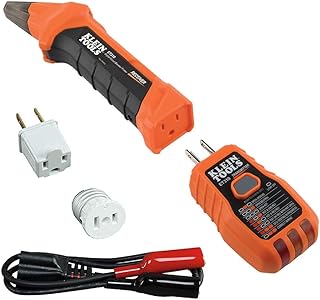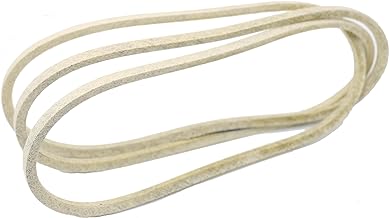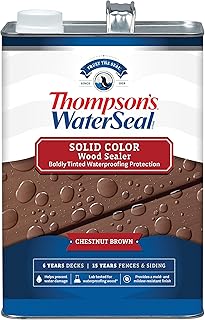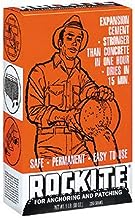5 important factors worth considering when looking for the best caulk to seal bathroom shower
Choosing the right caulk for sealing your bathroom shower is important to prevent water damage, mold, and mildew. There are key factors to consider when making this decision to ensure long-lasting results. Understanding these factors will help you make a clear and purposeful choice among the many options available. Ultimately, selecting the right caulk will enhance both the functionality and appearance of your bathroom.
See our guide to the best caulk to seal bathroom shower.
Type of caulk (silicone, acrylic, hybrid)
Choosing the right caulk for sealing your bathroom shower is important for keeping it in good shape. Silicone caulk is a great option for showers because it can handle being exposed to water and humidity without getting damaged. It’s flexible, waterproof, and can help prevent mold and mildew from growing, so it will last a long time. On the other hand, acrylic caulk is cheaper and easier to use, but it may not be as durable or water-resistant as silicone. Hybrid caulk, which combines silicone and acrylic, is a good choice for people who want a mix of performance and affordability.
Caulking is essential for keeping your shower sealed and leak-free. It’s a good idea to invest in high-quality silicone or hybrid caulk to avoid problems in the future. While acrylic caulk might be okay for less demanding jobs, it’s better to prioritize the long-term benefits of silicone or hybrid caulk. Overall, using premium caulk with excellent waterproofing and durability will help you maintain a clean and leak-free shower for years to come.
Mold and mildew resistance
Choosing a caulk that resists mold and mildew is important when sealing your bathroom shower. You don’t want to spend time sealing it just to see mold and mildew grow soon after. Using a high-quality caulk made to resist mold and mildew can save you from future problems and costs. This type of caulk will keep your shower looking clean and fresh for longer, and it will also help maintain a healthier bathroom by stopping harmful microbes from growing.
Although mold-resistant caulk may be a bit more expensive at first, the benefits in the long run are worth it. By selecting a caulk that fights against mold and mildew, you won’t have to reseal as often, and you’ll protect your shower from damage. This proactive approach not only makes your bathroom look better but also creates a hygienic space for you and your family. When picking caulk for your bathroom shower, make sure it resists mold and mildew to keep your home clean, strong, and healthy.
Waterproof and water-resistant properties
When you’re sealing a bathroom shower, it’s important to understand the difference between waterproof and water-resistant caulk. While they might seem similar at first, the details make all the difference.
Waterproof caulk creates a strong barrier that keeps water out, protecting against leaks and mold. On the flip side, water-resistant caulk only offers some protection against water and may not hold up well against constant exposure or heavy water.
Choosing waterproof caulk for your shower is like preparing for the future and preventing costly damage. Knowing your shower sealant can last a long time brings peace of mind. Water-resistant caulk might help a little, but it’s not as reliable in showers where moisture is a big issue.
Ultimately, the quality of your caulk determines how much maintenance your shower needs, so investing in the right type is key.
Flexibility and durability
When picking out caulk for sealing a bathroom shower, it’s important to focus on flexibility and durability. Quality caulk that is flexible can handle the movement and settling of the structure without cracking or wearing down over time. This flexibility is crucial in bathroom showers, where surfaces are exposed to moisture and temperature changes that can make materials expand and contract. Using flexible caulk can prevent leaks and damage from water, helping the shower last longer.
In addition to flexibility, durability is also important when choosing the right caulk for sealing a bathroom shower. A durable caulk can resist mold and mildew in the moist shower environment, and can withstand regular cleaning and scrubbing without losing its stickiness. This longevity ensures that the seal stays strong, acting as a reliable barrier against water and preventing costly repairs from water damage. By getting caulk that is both flexible and durable, you can create a long-lasting seal in your bathroom shower, giving you peace of mind and confidence in its structural integrity for the future.
Ease of application and clean-up
When sealing a bathroom shower, the type of caulk you use can make a big difference in how easy the job is. Choosing a high-quality caulk that goes on smoothly and dries quickly can make the task feel simple. On the other hand, using a low-quality caulk can make the process messy and frustrating.
It’s important to pick a caulk that is both firm and flexible, so it sticks well to surfaces but is also easy to work into tight corners and edges.
In addition to the application, the cleanup after using the caulk is also important. A caulk that can be cleaned up easily with just water and soap can save you time and effort. This will ensure a hassle-free experience throughout the project.
Investing in a good caulk that seals well and is easy to clean can help you achieve a successful bathroom renovation. This will leave you feeling accomplished and with a shower that is well-sealed and long-lasting.
Conclusion
When it comes to taking care of your bathroom, sealing your shower with caulk is really important. This simple step helps keep water out and prevents mold from growing, which helps keep your bathroom in good shape for a long time. By using caulk to seal your shower, you’re not just fixing a problem – you’re also making sure your home stays clean, cozy, and peaceful. Want more info on adjustable dumbbells, check the best adjustable dumbbells.



